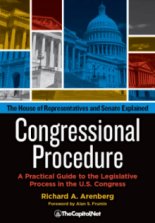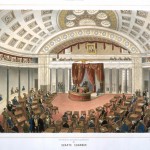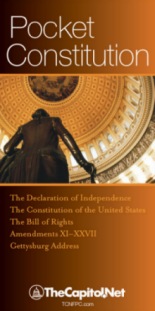Closed Rule / Modified Closed Rule / Special Rule / Open Rule (CongressionalGlossary.com)
From the Congressional Glossary – Including Legislative and Budget Terms Closed Rule / Modified Closed Rule / Special Rule / Open Rule In the House, under a closed rule, no amendments can be offered to the bill. Permits general debate for a specified period of time but permits no floor amendments. Amendments reported by the … Read more






